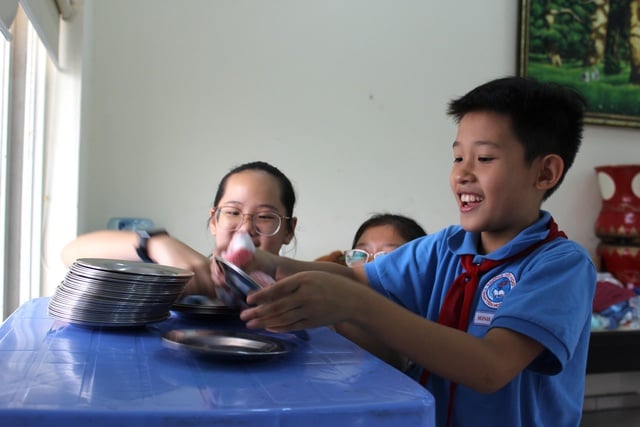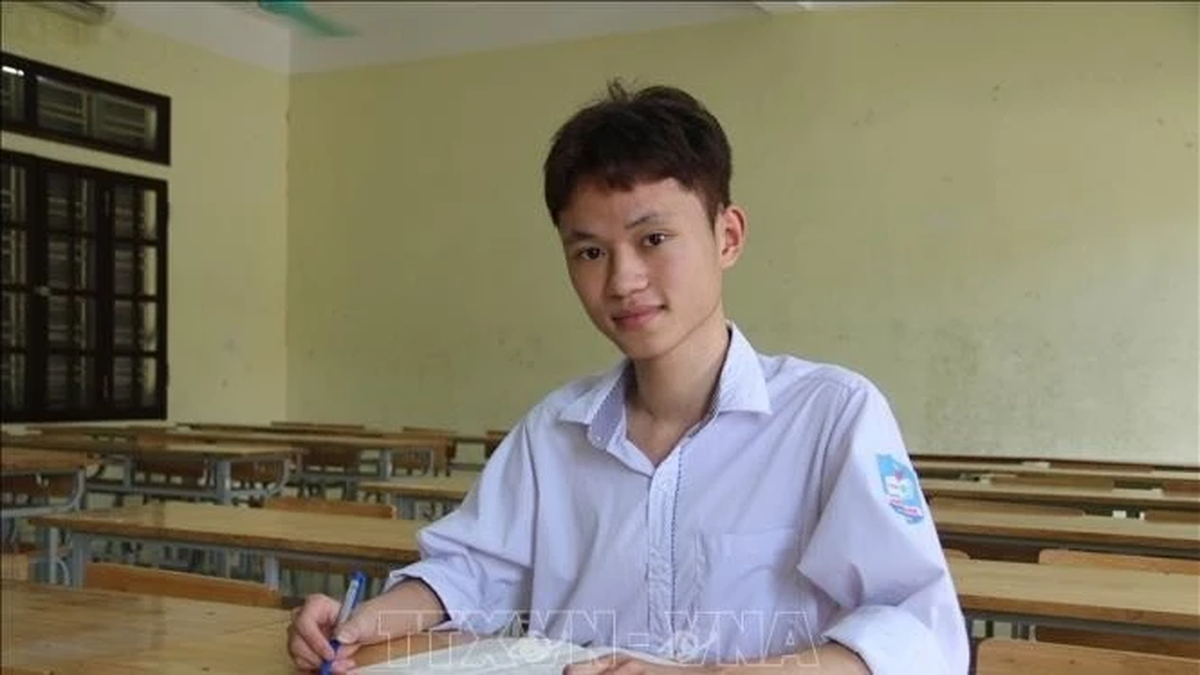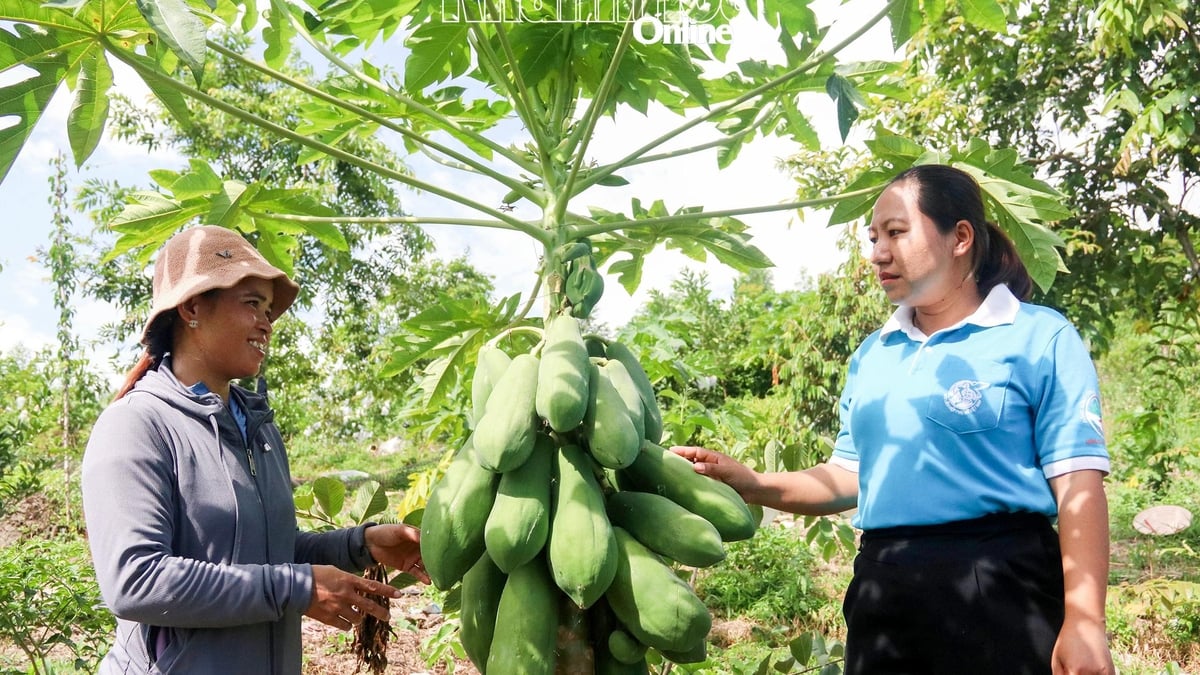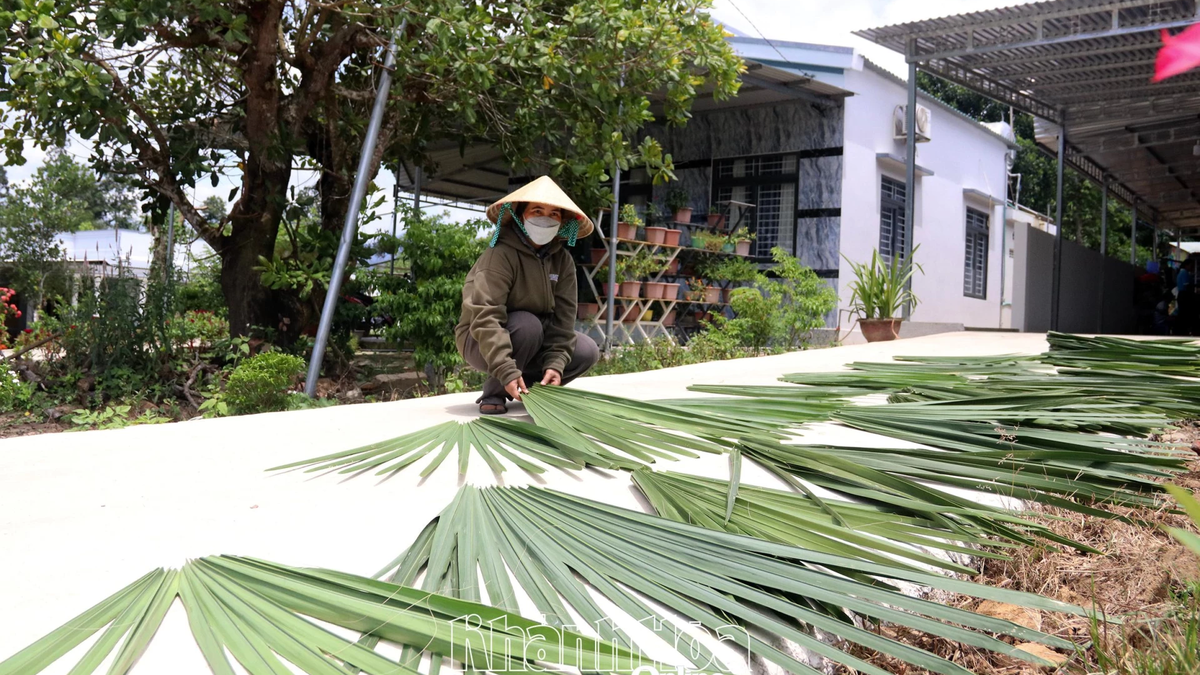The Ministry of Education and Training is seeking comments on a draft circular regulating rewards and discipline for students, which abolishes the most severe form of discipline, which is expulsion, for students who violate the law. According to the draft circular, there are only three forms of discipline, including: warning, criticism, and requiring students to write a self-criticism; expulsion is no longer a form of discipline for students. When issued, the new circular will replace Circular 08/TT of the Ministry of Education and Training, which provided guidance on rewards and discipline for students in general schools nearly 40 years ago (1988).
In this context, building self-discipline in students is a solid foundation for comprehensive development of qualities and abilities, while also being in line with the spirit of the 2018 GeneralEducation Program.
Self-discipline is not something far away but an ability that can be practiced every day.
Photo: Thuy Hang
What is self-discipline?
Self-discipline is understood as the ability to self-perceive right and wrong, self-regulate behavior, and persistently implement principles and goals without external supervision or coercion. This is discipline that comes from within each individual, not from coercion or formal pressure. A self-disciplined student is someone who can learn and behave properly even when no one reminds him or her – a crucial condition for survival and success in a lifelong, multidimensional, and volatile learning society.
Self-discipline is not something far-fetched, nor is it a slogan on the wall. It is a capacity that can be cultivated every day – from punctuality to honesty in exams, from keeping your word to being serious about studying.
Modern education does not seek perfect students but rather learners who are responsible, self-controlled, and willing to learn on their own and for life. Self-discipline is the first door to enter that journey. We always remind students: Start with the smallest things like turning off the lights when leaving the classroom, completing homework on time, and keeping promises to yourself. These are the things that will create a generation of civilized, self-controlled, and strong students.
Self-discipline from small things at each level of education
In the current context, when students not only learn in class but also through the internet, social networks and technology platforms, self-discipline becomes even more essential. No one can supervise their studies all day long. Only when they truly have inner awareness, know how to manage time, set personal goals, and persistently pursue them can they learn effectively and develop sustainably. From elementary to high school, self-discipline training needs to be designed to suit their age.
At the primary level, students need to form initial habits such as being punctual, keeping order, completing homework, and following classroom rules. This is the "seeding" stage for forming internal awareness.
At secondary school level, students can begin to plan their own studies, evaluate their own results, and participate in responsible group activities. Students should be encouraged to develop their own study plans, develop their own personal skills, and learn to self-regulate their emotions and behaviors.
By the time they reach high school, students should be given more autonomy: to set long-term goals, to participate in personal projects, to take responsibility for their own behavior and learning outcomes, and to take responsibility for their decisions. This is the way to turn discipline into competence – thereby forming self-reliant citizens and lifelong learners.
Students practice being nannies, getting food for their classmates at Dinh Tien Hoang Primary School, District 1, Ho Chi Minh City.
Photo: Thuy Hang
Solutions to develop self-discipline in modern education
Self-discipline is not only a matter of personal ethics but also a pillar for building a liberal, humane and sustainable education. Therefore, Vietnamese education today needs a synchronous solution to form this quality in students, aiming for "Real learning, real exams and real talent".
First of all, change the teaching method from imposing to guiding. Teachers should not only impart knowledge, but also become guides and inspirers, helping students to seek knowledge for themselves. Create conditions for students to plan their own learning, evaluate their own results, and take responsibility for their own behavior.
Next, enhance experiential activities - career guidance. Through practical activities such as learning projects, social work, small business startups... students will learn how to manage their time and work, thereby forming self-awareness. Through these experiential activities, students have the opportunity to practice the knowledge and skills of subjects, especially ethics, civics, economics and law, learned in class.
Next is to innovate student assessment. Not only by scores but also by comments on the learning process, attitude, and personal progress. Encourage self-assessment and peer assessment so that students can practice self-reflection and self-control of behavior.
Education needs to be coordinated between school, family and society. Families need to create an environment that encourages children to be independent and responsible (instead of overprotecting or controlling them). Society needs to set an example of self-disciplined and responsible people, avoiding the phenomenon of "circumventing the law" and cheating, which erodes the self-discipline of young people.
When students have self-discipline, they will not only study better, but also live more responsibly, honestly, courageously and persistently in life.
Photo: Thuy Hang
Using platforms such as LMS (online learning system), time management tools, reminder applications... helps students practice self-discipline in a modern, close way. Or the simplest is the Zalo group application to coordinate between homeroom teachers and parents in educating students, especially reminding students to be self-disciplined.
A modern education does not seek students to be absolutely obedient, but aims to train people who are capable of mastering themselves. When students have self-discipline, they will not only study better, but also live more responsibly, honestly, courageously and persistently in life.
Self-discipline is not a cage to limit freedom, but a compass for students to know the right direction for themselves. Education is only truly successful when students do not learn out of fear, but learn and practice because they understand that it is necessary for maturity. And self-discipline right from the elementary level is the beginning of that understanding.
Experience from other countries and previous Vietnamese education
Many countries with advanced education systems have demonstrated the effectiveness of placing a focus on self-discipline.
In Japan, students are trained from a young age in activities such as cleaning their own classrooms, serving their own lunch, lining up in order and respecting others... not because of fear of punishment, but because they are educated to see that it is the right thing to do.
In Finland , one of the world's most admired education systems, students are not pressured by grades or relentless testing, but are given autonomy to explore and self-evaluate their learning.
In Germany , children are encouraged to be independent from a very early age, such as going to school by themselves, preparing their own personal belongings, and learning to make responsible decisions.
In Korea , although students are under a lot of academic pressure, self-discipline is still maintained through school regulations and classroom management roles assigned to the students themselves.
In the United States , self-discipline is encouraged in the context of personal growth and achievement. Americans value self-planning, self-management of time, and taking responsibility for their choices. However, self-discipline can vary widely between social groups and educational systems.
Vietnamese education throughout the ages has emphasized discipline in schools. In the North before 1975, the socialist education system promoted collectivism, the spirit of "self-criticism and criticism", training in labor and group activities, thereby contributing to the formation of self-discipline in the direction of community responsibility.
Meanwhile, in the South during the same period, education was influenced by the liberal, humanistic educational model of the West, students were encouraged to develop the spirit of self-study and self-control, with self-discipline being considered a manifestation of maturity. And learning to be a human being was always valued in schools and families. At school, it was "First learn manners, then learn knowledge", and in society, people from urban to rural areas always believed in "Learning to be a human being", especially the virtues of politeness and self-discipline. English teachers always reminded students to learn the following sentence: "Self-discipline is essential for achieving long-term goals". (Self-discipline is essential to achieving long-term goals.)
Source: https://thanhnien.vn/bo-hinh-thuc-duoi-hoc-can-trang-bi-ky-luat-tu-giac-cho-hoc-sinh-185250512111341961.htm























































![[Maritime News] More than 80% of global container shipping capacity is in the hands of MSC and major shipping alliances](https://vphoto.vietnam.vn/thumb/402x226/vietnam/resource/IMAGE/2025/7/16/6b4d586c984b4cbf8c5680352b9eaeb0)













































Comment (0)